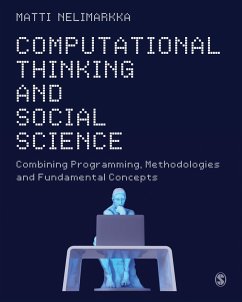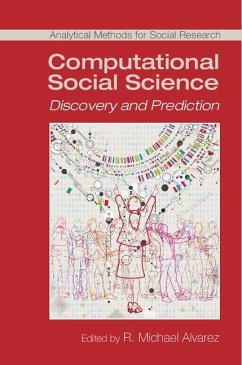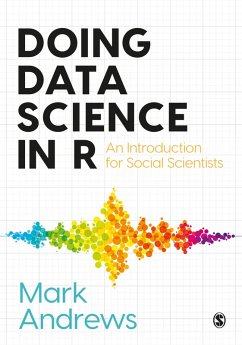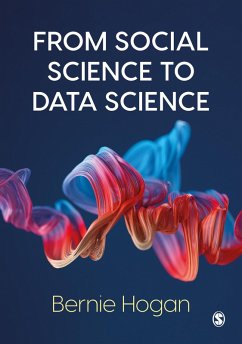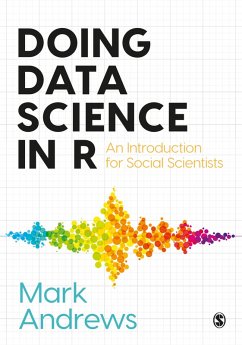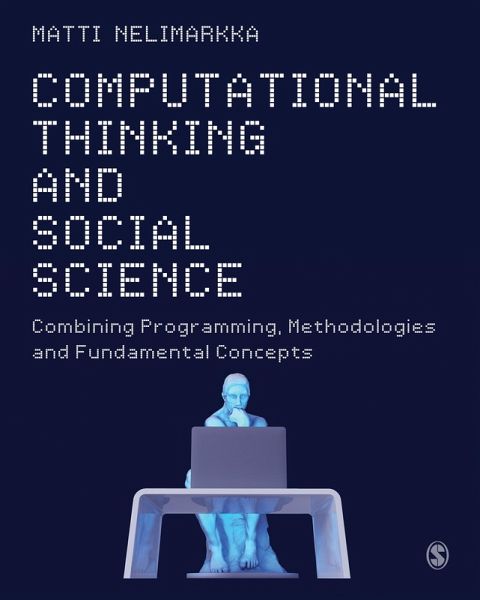
Computational Thinking and Social Science (eBook, ePUB)
Combining Programming, Methodologies and Fundamental Concepts
Versandkostenfrei!
Sofort per Download lieferbar
37,95 €
inkl. MwSt.
Weitere Ausgaben:

PAYBACK Punkte
19 °P sammeln!
Whilst providing a fundamental understanding of computational social science, this book delves into the tools and techniques used to build familiarity with programming and gain context into how, why and when they are introduced. The overall focus is on helping you understand and design computational social science research, alongside delving into hands-on coding and technical instruction. Key features include: Further reading Exercises accompanied by sample code Programming examples in Scratch, Python and R Key concepts Chapter summaries With experience in course design and teaching, Ma...
Whilst providing a fundamental understanding of computational social science, this book delves into the tools and techniques used to build familiarity with programming and gain context into how, why and when they are introduced. The overall focus is on helping you understand and design computational social science research, alongside delving into hands-on coding and technical instruction.
Key features include:
Key features include:
- Further reading
- Exercises accompanied by sample code
- Programming examples in Scratch, Python and R
- Key concepts
- Chapter summaries
Dieser Download kann aus rechtlichen Gründen nur mit Rechnungsadresse in A, D ausgeliefert werden.




